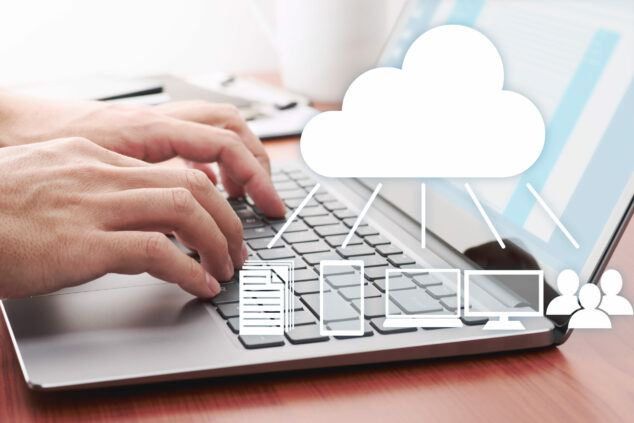Cloud and SaaS accounting systems are becoming ever-more sophisticated and more widely used. In essence, they are web-based software programmes which users rent or subscribe to. The advent of such services means businesses no longer own the software downloaded on a disk or computer. Instead, subscribers can use the internet to access their financial information.
Small business accounting can be a challenge, but it needn’t be. Below, are five advantages of using an cloud-based and SaaS (software-as-a-service) accounting system for your business:
1. Time saving
One of the benefits of internet-based accounting software is its ease of use. You can set up an account so that information about your finances — including sales, income, purchases and transactions — can flow straight from your business account to your books.
Using desktop-based softwares, from the advanced to the Excels of the world, can be clunky and mean small business owners must manually input bookkeeping data. This can waste time and prove expensive for a streamlined team. With the cloud, entrepreneurs can essentially go ‘hands free’, which means spending less time on repetitive accounting tasks and more time on growing the business.
2. Easy access
The beauty of cloud and SaaS accounting software means that all you need to access extensive company financials is an internet connection. Instead of having to access a computer with the software downloaded onto it, teams can share access with separate log in details from anywhere, allowing for remote working. On the go, on a phone, on a train or in a meeting, you can quickly access important information with a series of simple clicks.
Cloud and SaaS accounting software is well-suited to being shared across teams and employees. Many SaaS systems provide customisable dashboards displaying important financial information, without having to have been calculated by a member of the team. It can also be accessed by an external accountant or bookkeeper, granting flexible working.
3. No upfront investments
Internet-based accounting softwares are subscription-based, and this means that small businesses won’t be hampered by large upfront costs, as is often the case with desktop software programmes.
The subscription model also means businesses can rearrange their accounts when it suits them, with the ability to add-on features. Many cloud-based accounting softwares were designed to optimise scalability and flexibility, making them great for small business accounts as they can grow and pivot with a company.
4. User-friendly
To ensure everyone can use cloud accounting, many SaaS and cloud softwares have been designed and developed for intuitive use. Plenty of small business owners didn’t set up shop because they were skilled accountants and can struggle with the nuts and bolts of bookkeeping. If you have limited accounting knowledge as a small business owner, intuitive cloud systems could be for you.
In addition, eliminating the need to transpose data from a spreadsheet to a software system means the risk of mismatched, out-of-date, or simply incorrect data is minimised. Reliable cloud accounting software can help to dissipate some of the risks and concerns around a small business’ ever-important financials.
5. Added security
With desktop software, users ought to remember to back-up their accounts at the end of each working day. Software updates can also be a headache, having to be re-downloaded each time a provider launches the latest version.
On SaaS accounts, you’re always logged in to the most up-to-date version of the software. Not only does this mean your calculations and amends save automatically, but security is tighter. Accounting data is encrypted at source and saved to the cloud, instead of languishing on a hard drive which could corrupt or be lost or stolen.
Interested in checking out some accounting software providers for your small business?
See some leading providers here:
See also: New EU VAT regulation – how accounting software can help – The new EU VAT regulation came into force on July 1st 2021. What does this mean for small businesses and how can accounting software help?
This article is part of a paid-for information campaign for MVF





